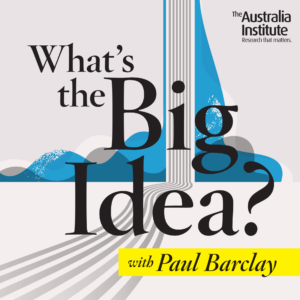Super-powered nukes: Is your superannuation funding weapons of mass destruction?
When you choose your superannuation fund, you’re probably not thinking about weapons of mass destruction.
But it might surprise you to learn that if you’re with one of Australia’s largest funds, your money is going into the production of nuclear weapons.
Research published last month by Quit Nukes and The Australia Institute found that 13 of Australia’s 14 biggest public super funds invested a combined total of $3.4 billion in companies involved in the production of nuclear weapons, as of December 2023.
Australian Super—Australia’s largest fund—was the biggest investor, with nearly $1.5 billion of its members’ money funnelled into nuclear weapons companies. Hostplus was the only fund out of the top 14 that had excluded nuclear weapons from its portfolio.
If that wasn’t enough, two of the funds—Australian Super and Spirit Super—invest in nuclear weapons companies with their ethical investment options. You read that right: “ethical” investments in nuclear weapons.
Most people would be shocked to hear their money is being used to fund nukes.
How do super funds get away with it? It comes down to the way they define nuclear weapons.
All super funds apply various “screens” to exclude certain types of investments from their portfolios, for example companies involved in fossil fuels or tobacco.
Ten of the fourteen super funds screen out “controversial weapons”, such as chemical and biological weapons, from their default MySuper investment options. But only one includes nuclear weapons in its definition of “controversial”.
It is astounding that super funds claim the most dangerous weapons ever created are not controversial. Is it because they think nuclear weapons are uncontroversially bad? More likely, it’s because they think they can get away with it.
But super funds are wrong: Australians care about this topic. Polling for our previous report on nuclear weapons and super in 2021 showed that seven in ten (69%) Australians agree their super should not invest in companies producing nuclear weapons, and eight in ten (78%) say their funds should clearly state whether they do so.
You may be thinking that super funds have a duty to achieve the best returns for their members. So, if nuclear weapons are good money-makers, aren’t funds just being financially responsible by investing in them?
Two things.
First, financial performance data shows that divesting from nuclear weapons companies has an immaterial impact a fund’s performance, and sometimes even slightly increases financial returns.
Second, nuclear weapons pose catastrophic, systemic risks to people across the world. Even a “limited” nuclear war involving only 250 nuclear weapons would kill 120 million people outright, as well as causing a nuclear winter and famine imperilling two billion more human lives. Such a scenario would almost certainly impact, if not cause the total collapse of, global supply chains and financial systems. This would not be in anyone’s financial interests.
The international community recognises these risks. In 2021, the United Nations Treaty on the Prohibition on Nuclear Weapons entered into force. The Treaty prohibits the development, possession and use of nuclear weapons, placing them on par with other controversial weapons. It was adopted by 122 countries in 2017. Australia is yet to sign on to the Treaty, even though the Labor Party has pledged to do so since 2018. Regardless, super funds can act in line with these international norms.
If you don’t want your retirement savings going into weapons of mass destruction, the most impactful thing you can do (besides sharing our research!) is emailing your super fund. Ask them whether they invest in nuclear weapons and tell them you don’t want them to. Don’t let them brush you off with references to their ethical investment option: make it clear you would like them to divest from nukes across their entire portfolio.
And if none of that works, take your money elsewhere.
This kind of pressure works.
Since our first report in 2021, Hostplus has divested from nuclear weapons across its portfolio. And Spirit Super has told us it will be excluding nuclear weapons from its ethical option from November this year.
Putting money into super is one of the most tangible things we do to prepare for our long-term futures. Nuclear weapons are antithetical to a shared prosperous future.
UN Secretary-General Antonio Guterres warned in 2022 that humanity is “just one misunderstanding, one miscalculation away from nuclear annihilation”. Super funds are, unbeknown to most Australians, pushing us closer to this catastrophic outcome.
It is past time for super funds to comply with international law, act in their members’ best interests and divest entirely from nuclear weapons.
Related research
Between the Lines Newsletter
The biggest stories and the best analysis from the team at the Australia Institute, delivered to your inbox every fortnight.
You might also like
No nukes: Australia must push for serious global nuclear disarmament | Tilman Ruff
Nuclear weapons are still a threat to humanity. In our age of uncertainty, Australia isn’t doing enough to rid the world of these weapons.
The changes to superannuation tax concessions are needed and very fair
The arguments against the government’s changes to the taxation of superannuation are nothing more than lies and fear.
Why you shouldn’t be scared of these super changes
The election might be over, but the next big scare campaign is just getting started. The subject this time is the Albanese government’s planned changes to taxes on superannuation.

